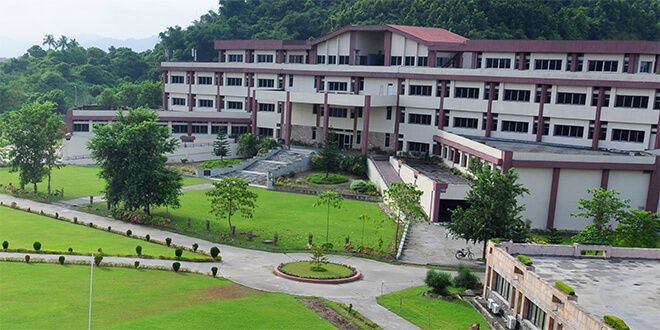IIT Guwahati researchers to work on protecting data from cyber attacks
IIT Guwahati has collaborated with the University of Pardubice, Czech Republic, to protect the nation’s digital data from cyber-attacks by advanced computers.
The Indian Institute of Technology (IIT) Guwahati has announced that it has tied up with the University of Pardubice, Czech Republic, to work on an indigenous algorithm that seeks to protect the nation’s digital data from cyber-attacks by advanced computers. The team is also developing indigenous algorithms to protect digital data from cyber-attacks and encryption architectures to protect sensitive health data that is transmitted through the internet.
The team led by Dr Gaurav Trivedi, Associate Professor, Department of Electronics and Electrical Engineering of IIT Guwahati, also includes Professor Srinivasan Krishnaswamy, Assistant Professor, Department of Electronics and Electrical Engineering, and Professor Zdenek Nemec and Professor Jan Pidanic from the University of Pardubice. It also includes research scholars of IIT Guwahati -- Bikram Paul, Uddipana Dowerah, Tarun Kumar Yadav, Balbir Singh, Abhishek Agrawal, Meenali Janveja, and Souradip Pal.
The team's work has been published in the proceedings of IEEE International Conference Radioelektronika (RADIOELEKTRONIKA) and has received 3rd best paper award by IEEE Czechoslovakia Section based on its research contributions.
“While sensitive data is stringently protected by encryption (the virtual ‘lock’ for precious data), the power of quantum computers can easily break even apparently “invincible” encryption codes. It is generally feared that once quantum computers become the predominant workhorse of the near-future digital era, almost all existing data-protective encryption schemes would become vulnerable and obsolete,” IIT Guwahati said in a statement.
“It has become indispensable to design new encryption schemes that can resist both quantum computers as well as classical computer-based attacks,” says Dr Trivedi.
The team has developed various encryption algorithms and designed indigenous soft IPs which can be integrated into Systems-on-Chip (SoC) to protect them from cyber-attacks, thereby enhancing the safety of our nation against cyber-attacks. It has also worked towards enhancing data security in the healthcare sector that is increasingly using the Internet-of-Things (IoT) to cater to the needs of the country. IoT healthcare aids in the real-time diagnosis of diseases by keeping a patient digitally connected to a medical expert 24x7, thus avoiding the visits and admissions in the hospital, a facility particularly critical in these pandemic times, the institute said in a statement.
“We have developed an area- and power-efficient Advanced Encryption Standard (AES) architecture that can encrypt and decrypt ECG data for transmission across the Internet. This is also suitable for low power IoT applications,” said Dr Trivedi.
Read More:
Follow Shiksha.com for latest education news in detail on Exam Results, Dates, Admit Cards, & Schedules, Colleges & Universities news related to Admissions & Courses, Board exams, Scholarships, Careers, Education Events, New education policies & Regulations.
To get in touch with Shiksha news team, please write to us at news@shiksha.com


She has over 10 years of experience in the education and publishing sectors. She specialises in exam coverage and content creation. At Shiksha, she writes, analyses, and presents information for students preparing f
Read Full Bio